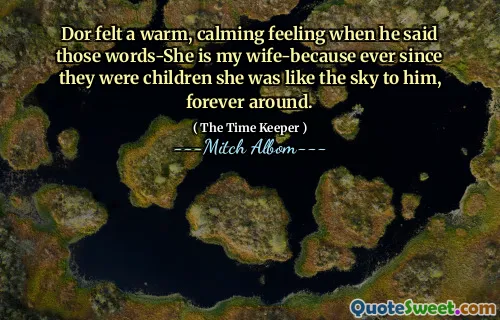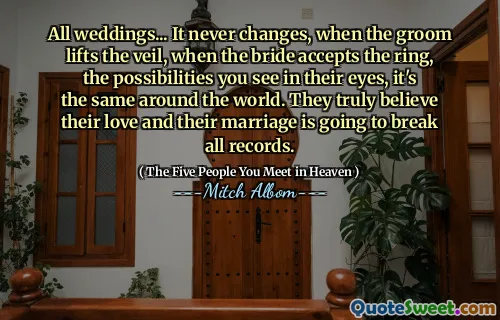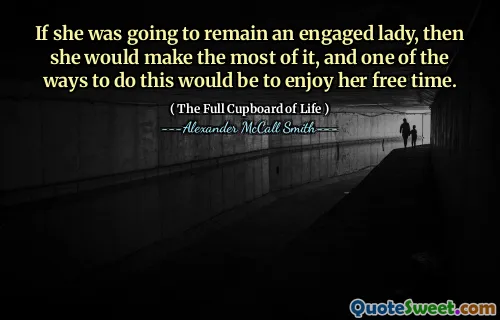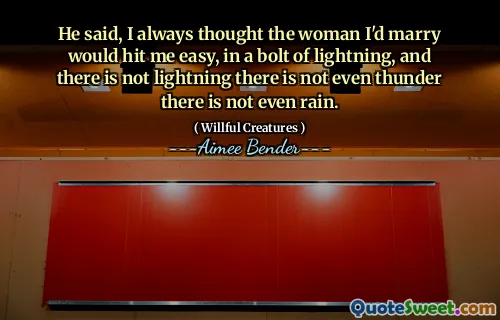Well, the husband was very depressed for the longest while. Even after he found out that his wife was going to pull through, he was still very depressed. Not about the accident, though. I mean, the accident was one thing, but it wasn't everything. I'd get up to his mouth-hole, you know, and he'd say no, it wasn't the accident exactly but it was because he couldn't see her through his eye-holes. He said that was what was making him feel bad. Can you imagine? I'm telling you, the man's heart was breaking because he couldn't turn his goddamn head and see his goddamn wife.
The husband experienced deep depression following an accident that affected his wife, even after learning she would survive. His struggle was not solely with the trauma of the incident itself, but rather with the emotional pain stemming from his inability to see her. He expressed this frustration vividly, indicating that the accident was just a part of his sorrow.
This feeling of helplessness, accentuated by his physical limitations, left him heartbroken. His inability to turn his head and visually connect with his wife intensified his emotional distress, overshadowing the actual event of the accident. The description illustrates a profound connection between love and the need for physical presence, highlighting how emotional suffering can emerge from relational disconnect.





